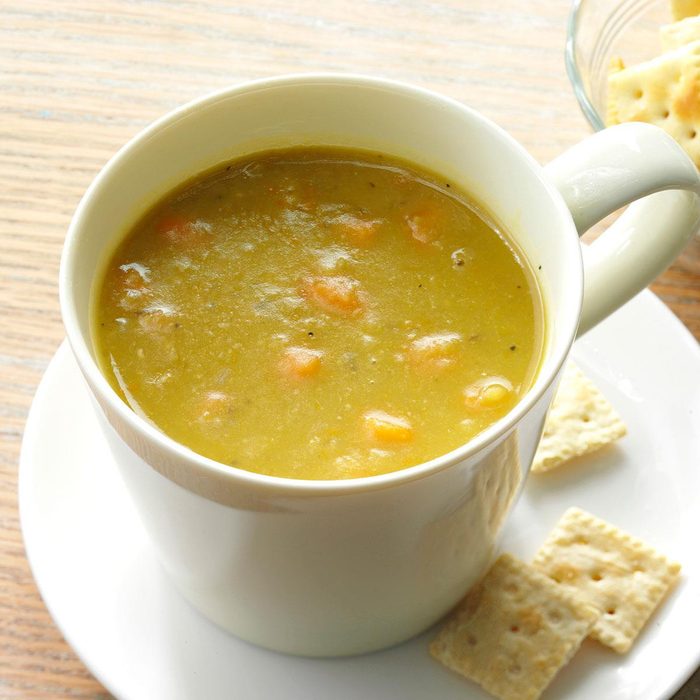
Foods that Fight the Flu
“The preoccupation with COVID and a certain vaccine fatigue mean that people need to be reminded about the flu,” physician Dr. William Schaffner recently told the New York Times. Although the flu rate in Canada remains low for this time of year, experts believe we’re more vulnerable to the flu after having low exposure to it in 2020 and 2021 due to COVID-19 restrictions.
The first line of defence against the flu is getting vaccinated. Having a healthy immune system to fight the good fight can also help.
“A good diet is essential,” says Jennifer Tanner, a naturopathic doctor with Kinetica Health Group in Toronto. “When you eat poorly, you have less food for the warriors—those immune cells—to go out and fight.”
Immunology expert Dr. William Boisvert, a tenured professor at the University of Hawaii’s John A. Burns School of Medicine, agrees. He says undernutrition is one of the biggest causes of immune deficiency. “A diet chronically lacking in macronutrients, such as protein and healthy fat, can significantly impair the ability of the immune system to fight infections.”
Read on for an expert-approved list of the top 15 foods that fight the flu and boost your immune system.
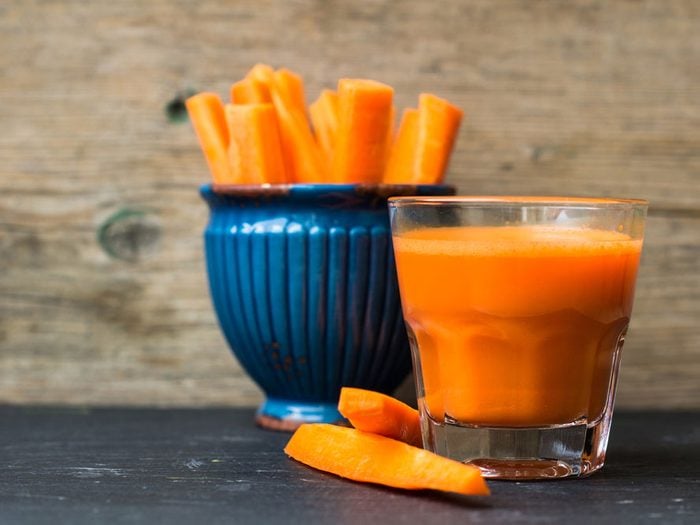
Carrots
Carrots are rich in beta carotene and vitamin A, which helps your body repair an impaired immune system. “Vitamin A helps combat free radicals and prevent cell damage,” says Tanner. Try them raw, lightly steamed, roasted, shredded or tossed in salads, soups, meatloaf, muffins and more.
(Try our roundup of the best carrot recipes.)
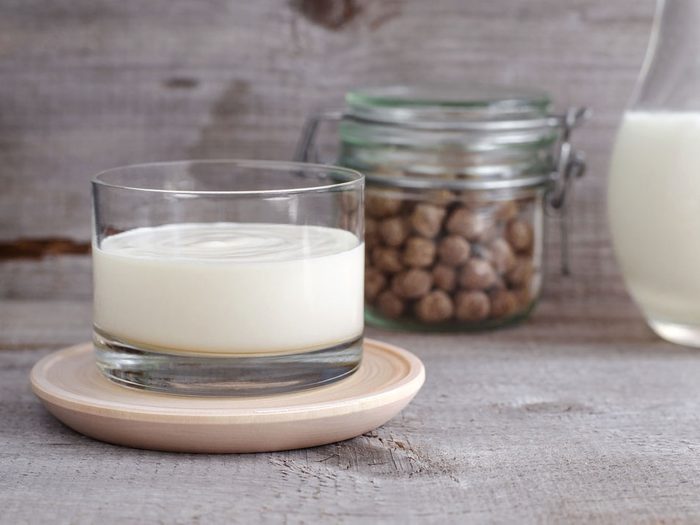
Kefir
Kefir is a superfood filled with probiotics. A 2012 study published in the British Journal of Nutrition found that probiotics may reduce symptoms and recovery time for the common cold. “Probiotics help promote strong immune health,” says Natasha Audette, a registered holistic nutritionist. “They’re vital to proper digestion. Without proper digestion, our bodies are unable to break down the nutrients we take in through food to help strengthen our immune systems.”
(Try our rrecipe for coconut kefir.)
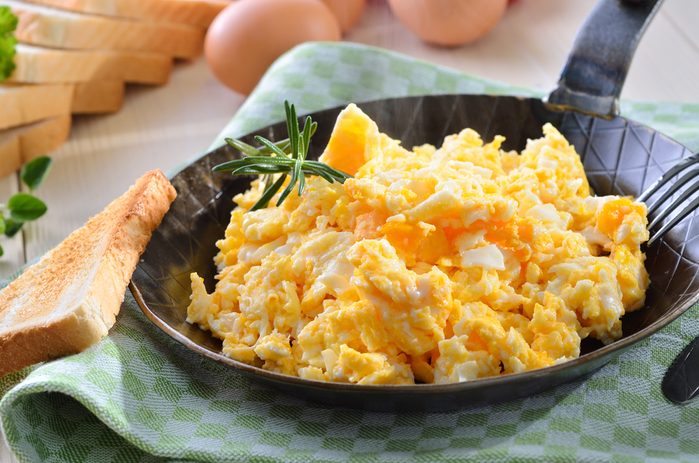
Eggs
A morning scramble gives you a dose of selenium, which helps keep your immune system and thyroid working well. “Eggs are also high in protein and amino acids, the building blocks for all cells,” says Tanner. In particular, protein helps support your immune system via T-cell enhancement. Amino acids found in protein help stimulate the immune system, which can help defend against colds and flu.
(Here are our favourite egg recipes for breakfast, lunch and dinner.)
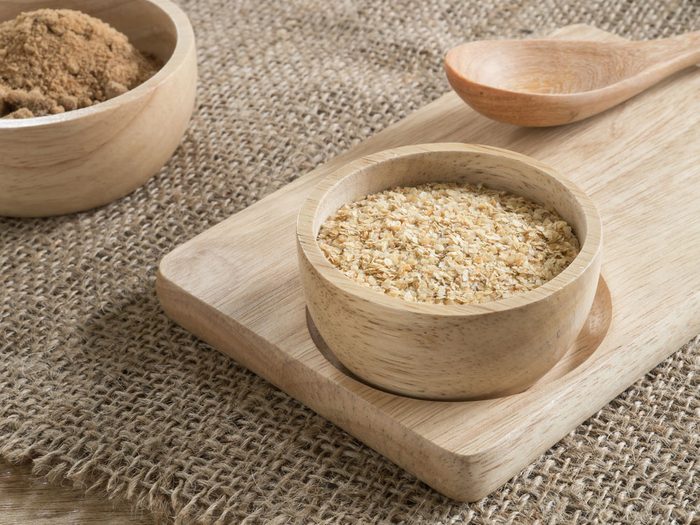
Wheat Germ
Wheat germ is packed with nutrients, including vitamin E, selenium and magnesium. It’s also a key vegetarian source of zinc. Stir wheat germ into smoothies or muffin batter for extra illness-fighting oomph.
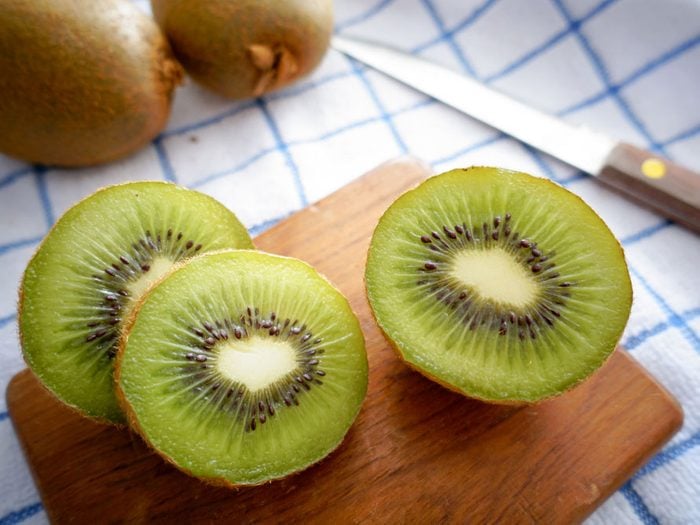
Kiwi
Kiwis are high in carotenoids, polyphenols and vitamin C. Vitamin C contributes to maintaining the integrity of cells, protecting them during inflammation. And studies have shown that getting a little extra vitamin C might slightly reduce the duration of illness in a healthy person. Not a fan of kiwis? Bell peppers, strawberries and citrus fruits, of course, are other good sources of vitamin C.
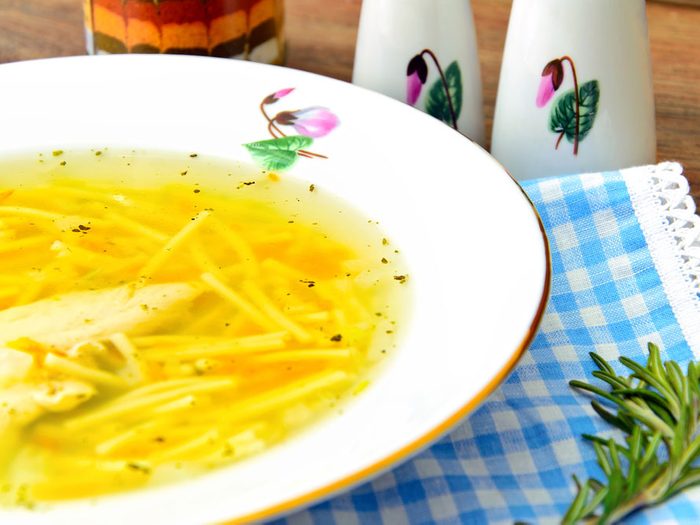
Chicken Soup
Yes, it is good for the soul — and the immune system. Research in the American Journal of Therapeutics found that chicken soup really does help the body’s immune system fight the early stages of flu, but it’s unclear whether it’s the chicken, the broth or a combo of ingredients that gives chicken soup its power. The soup acts as an anti-inflammatory and speeds up the movement of mucus through the nose, relieving congestion. And that’s not all: “The broth is good for hydration, and the protein in the chicken is a building block for your cells,” says Tanner. All in all, your mother was right.
(Here’s how to make Crockpot chicken noodle soup.)
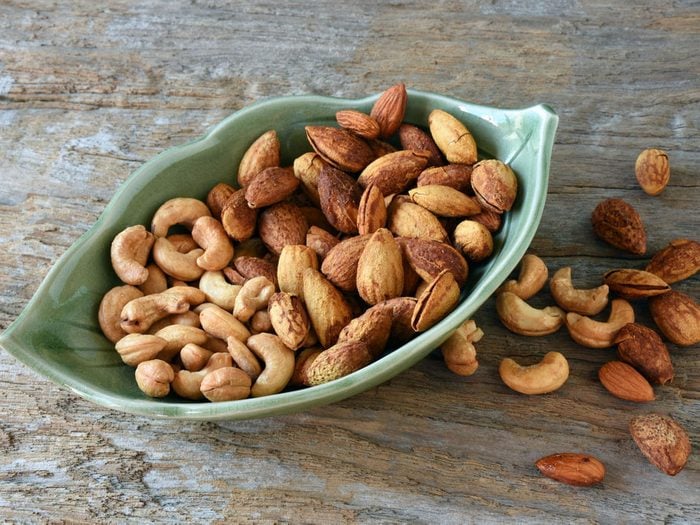
Almonds
Almonds are very high in vitamin E, a fat-soluble antioxidant that helps protect cells against damage. A 2010 Italian study found that a naturally occurring chemical found in almond skins can boost the immune system’s response to infection. To sneak in more almonds, think beyond snack time: Spread almond butter on your morning toast or sprinkle slivered almonds on your salad at lunchtime.
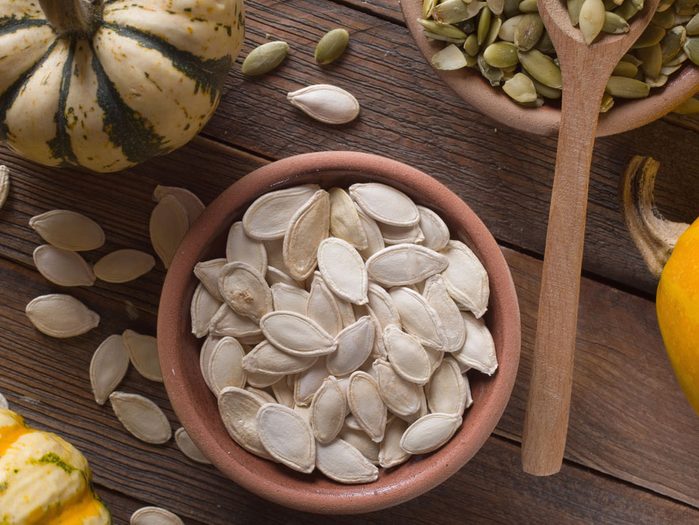
Pumpkin Seeds
Pumpkin seeds are very high in zinc, which may be essential to warding off colds and flu. Research has shown that zinc deficiencies can impair your immune system. Zinc is also important for T-cell function – another important role of the immune system. Eat a handful for a snack or toss in trail mix to up your intake of zinc.
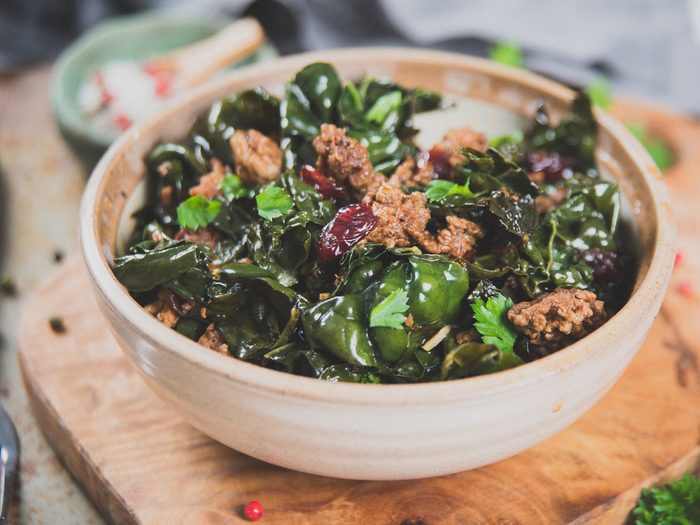
Kale
Kale is rich in antioxidants, folate and vitamins A, C and K. A 2011 study has shown that kale stimulates the immune system. Plus, it is a great source of iron. Tanner likes making pesto with kale instead of basil. Try her simple kale salad by mixing chopped kale with 1 cup yogurt, 1 tbsp honey, 1 tbsp olive oil, 2 tbsp freshly squeezed lemon and salt and pepper.
(Try this strawberry kale salad.)
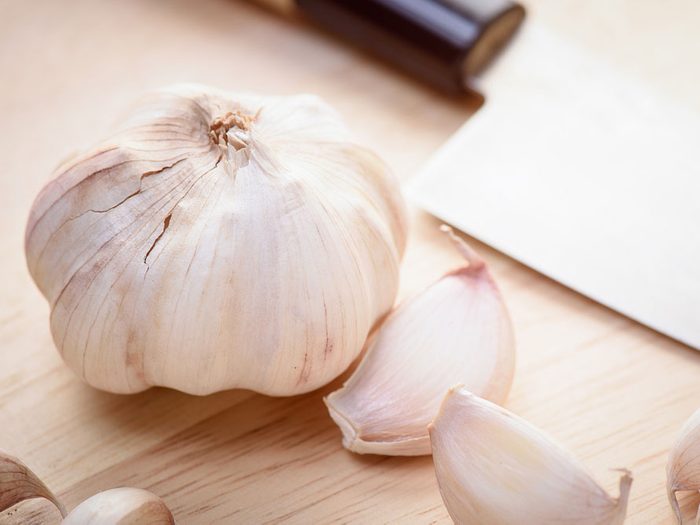
Garlic
Garlic may have infection-fighting capabilities. In a 2004 study in the British Journal of Biomedical Science, researchers found allicin, a sulfer-containing compound in garlic, to be powerful against bacterial infections from methicillin-resistant staphylococcus aureus (MRSA). As for the common cold, a double-blind, placebo-controlled study published in Advances in Therapy found that a daily garlic supplement helped to reduce the longevity of common cold symptoms, and those taking the garlic supplement were less likely to contract a cold in the first place.
(Try our classic garlic soup.)
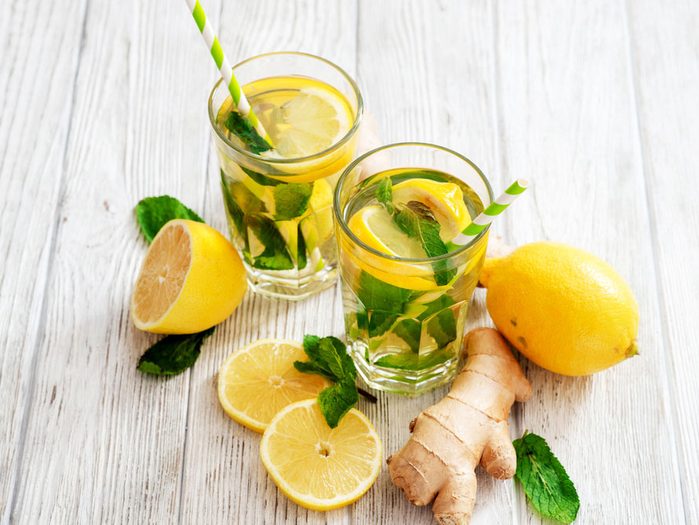
Ginger
“Ginger is proven to cleanse the colon and protect the stomach and is a powerful antioxidant,” says Audette. “It can also fight inflammation, especially if you have a sore or swollen throat.” Add a little fresh grated ginger to a cup of herbal tea for a soothing drink that’ll help fight what ails you.
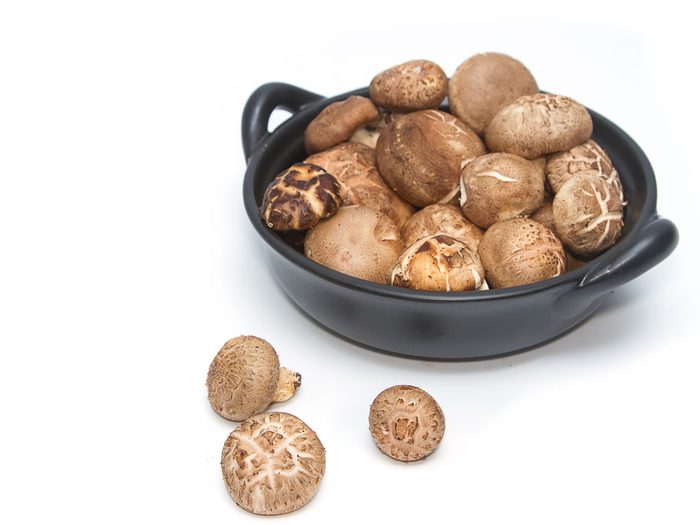
Shiitake Mushrooms
A University of Florida study showed that eating a shiitake mushroom a day (about four ounces) could improve immune function. In the study, a group of healthy adults took a four-week supply of dried shiitake mushrooms. After the experiment, researchers found better-functioning gamma delta T-cells and reductions in inflammatory proteins.
(Try our mushroom recipes.)
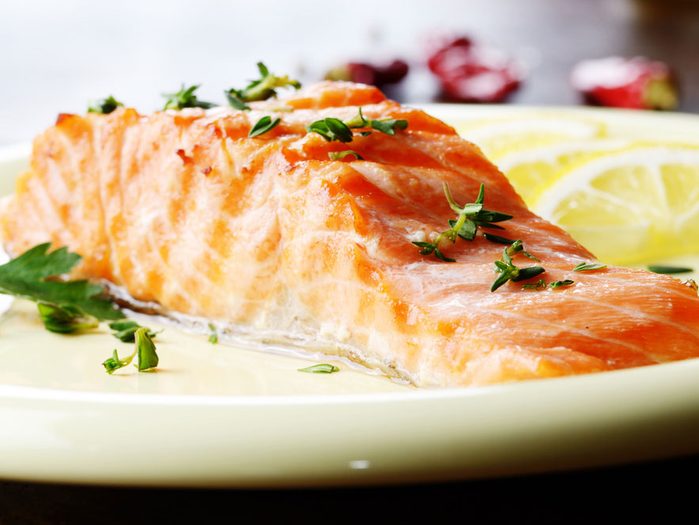
Salmon
One three-ounce serving will provide nearly 40 percent of your daily protein needs and more than half of your daily vitamin D requirements. Multiple studies show that vitamin D deficiency is associated with increased susceptibility to infection. Salmon also contains essential fatty acids, which are vital for proper immune health, says Tanner.
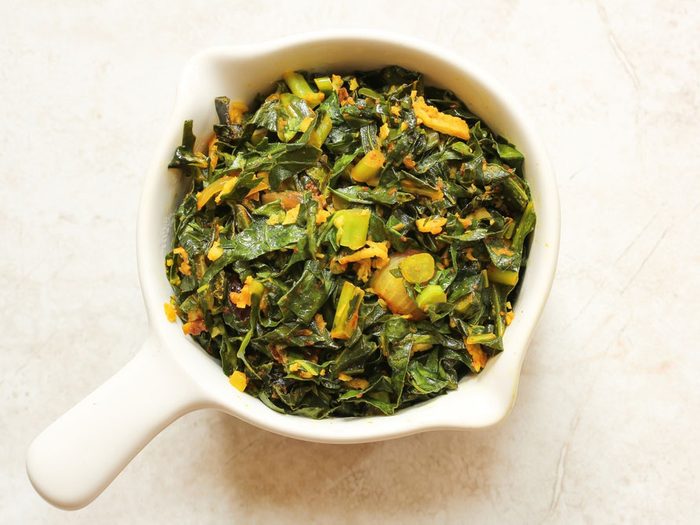
Collard Greens
Collard greens are high in folate, an essential water-soluble B vitamin that’s important for cell growth. In addition, studies have shown that folate deficiency can depress the immune system. Because folate can’t be stored in your body, you should eat folate-rich foods every day, including dark leafy greens, beans and legumes.
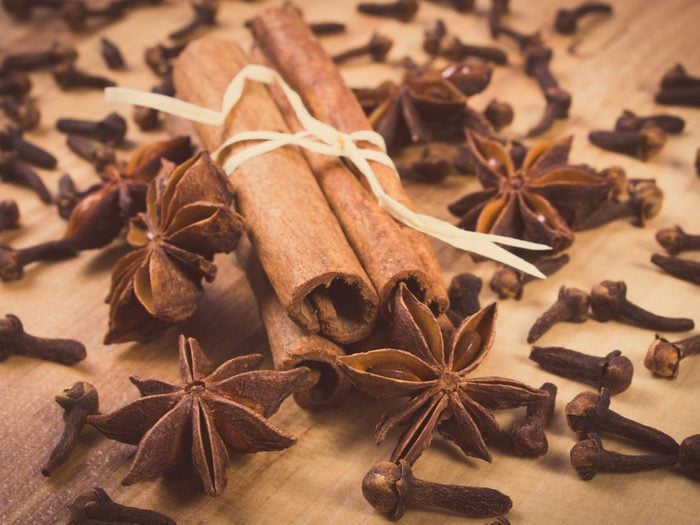
Cloves
“Cloves are helpful in fighting parasites, which can slow down the immune system response and aid digestion,” says Audette. The main ingredient that makes cloves so potent for increased immunity is eugenal, a substance that has proven effective against bacteria and viruses. In fact, the antioxidant properties of cloves are higher than most other spices, fruits and vegetables. You can buy clove oil or add cloves to both sweet and savoury cooking.

Already Feeling Down?
If you get sick, focus on warming foods, like soups and stews. “It is less work to break that food down, which means your body can pull the nutrients out of the food easily, making eating less of a burden on your system,” says Tanner.
Next: 26 Healthy Comfort Soups That’ll Make You Feel Warm and Cozy
